Food & Beverages
-
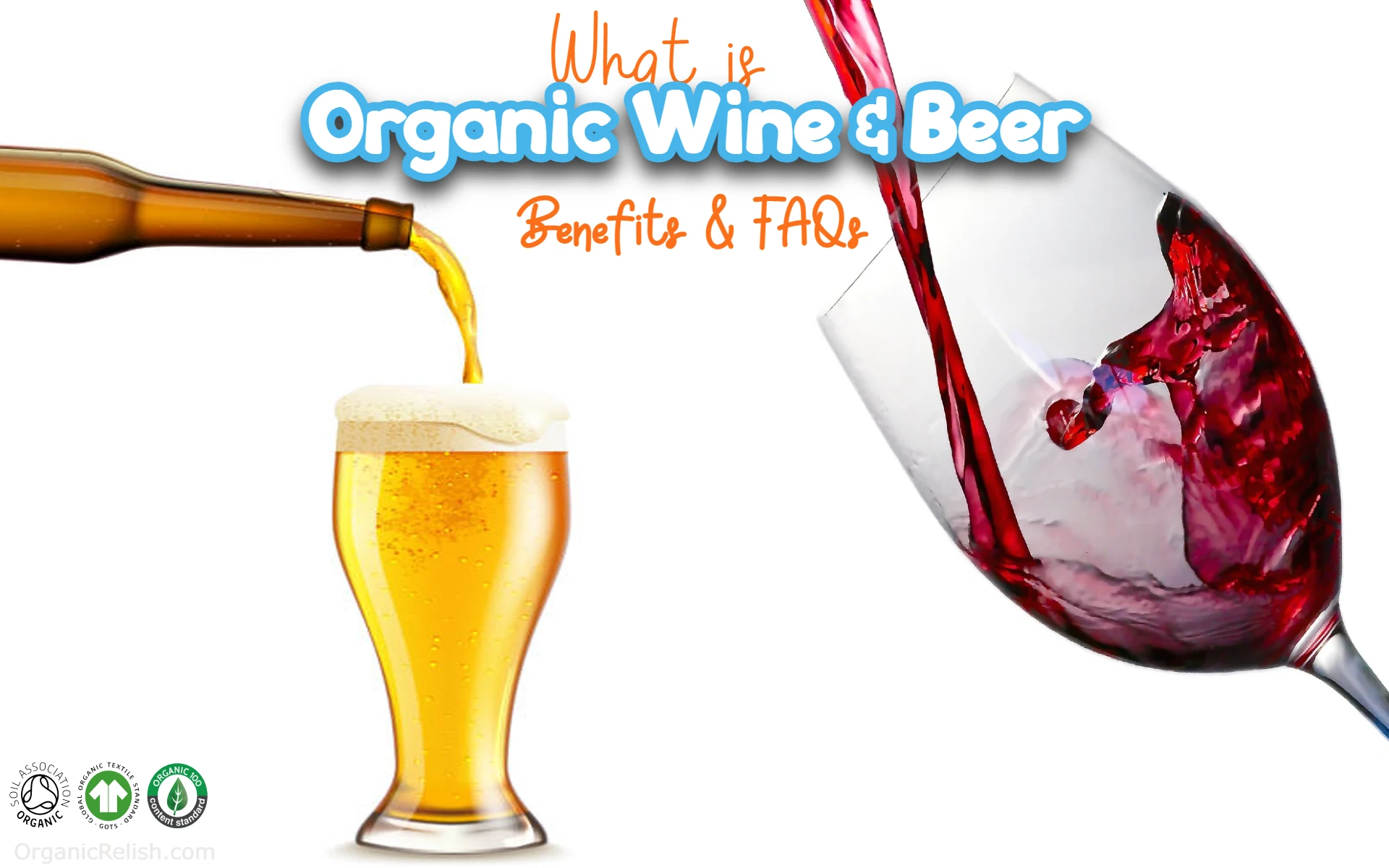
What is Organic Wine and Beer?
If you're looking for a more eco-friendly and healthy drinking option, consider switching to organic wine and beer. Not only do these beverages offer a cleaner taste and fewer harmful chemicals, but they also support sustainable farming practices. In this guide, we'll explore the benefits of organic wine and beer, answer frequently asked questions, and help you choose the best options for your taste preferences.
-
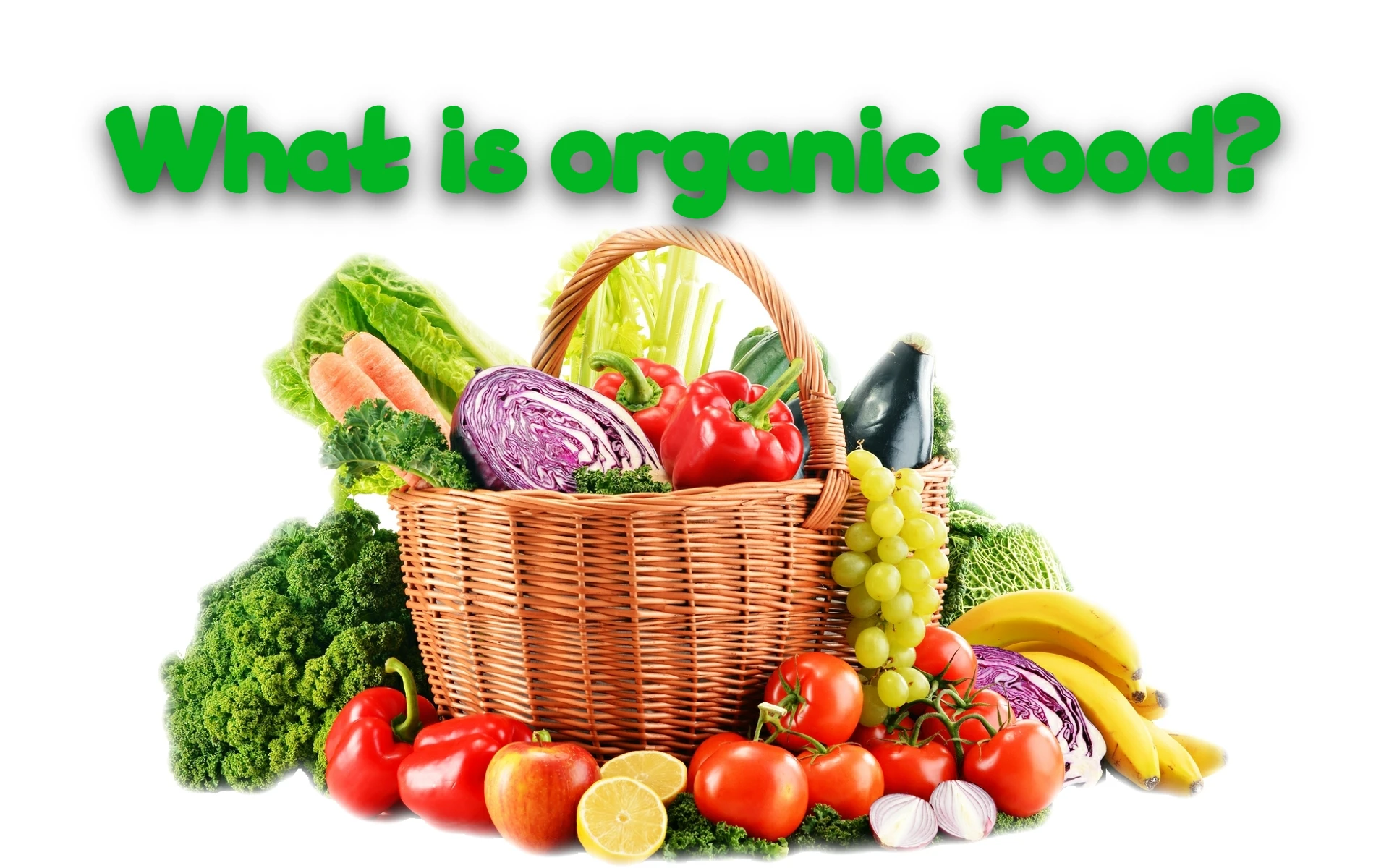
What is Organic Food?
Organic Food: An Overview Organic food has become a popular choice for many consumers due to the numerous health benefits it provides. Unlike conventional food products, organic foods are grown without the use of harmful chemicals, pesticides and genetically modified organisms (GMOs). This not only protects the environment, but also ensures that the food you consume is free of harmful substances and chemicals. One of the biggest reasons to choose organic food is to improve your overall health. Organic foods are generally more nutritious than conventional foods and are rich in essential vitamins and minerals. Additionally, organic foods are often fresher, as they are not treated with preservatives, which can affect the taste and nutritional value of the food. By choosing organic food, you can help ensure that your diet is providing you with the nutrients you need to maintain optimal health and wellness. Another factor to consider when choosing organic food is environmental sustainability. Organic farming practices are more environmentally friendly, as they reduce the amount of harmful chemicals and pesticides that are released into the environment. This can help to protect our planet for future generations, and also helps to support local farmers and communities. When you choose …
-
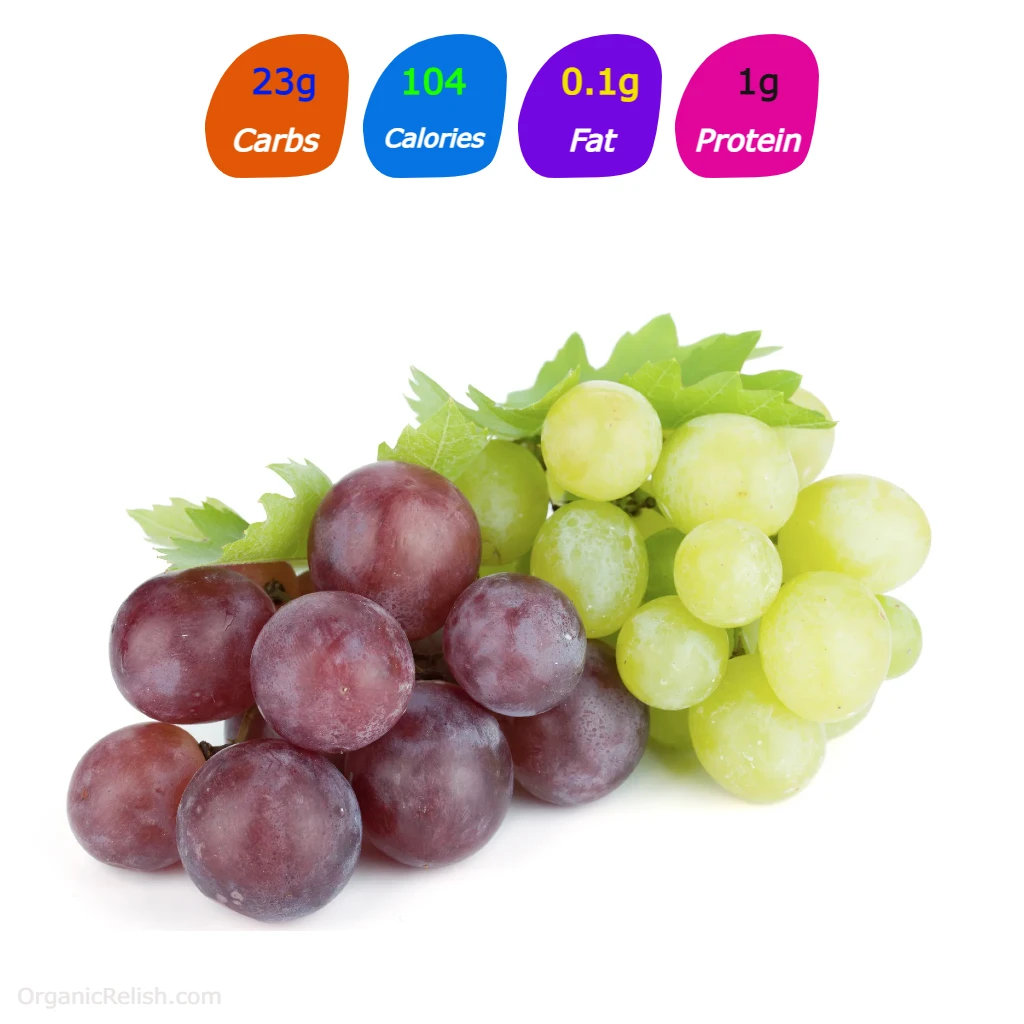
How many Carbs in Grapes?
The carbohydrate content of grapes is generally similar across different varieties, with about 23 grams of carbs in a cup (151 grams) of whole grapes. However, the carbohydrate content of grapes can vary slightly depending on the variety and size of the grapes, as well as the serving size. It’s important to note that grapes are also a good source of fiber, with about 1.4 grams of fiber per cup. Fiber is a type of carbohydrate that is not completely absorbed by the body and does not have the same effect on blood sugar levels as other carbs. Therefore, the net carb content of grapes (total carbs minus fiber) is lower than the total carb content. If you are following a ketogenic diet, which limits carb intake to 20-50 grams per day, it’s important to keep track of your overall carb intake and to choose foods that are low in carbs and high in fiber. Grapes may be consumed in moderation as part of a keto diet, but it’s important to monitor your intake and choose other low-carb foods to balance out your meals and snacks. Grapes Nutrition Facts Grapes are a good source of nutrients and can be part …
-
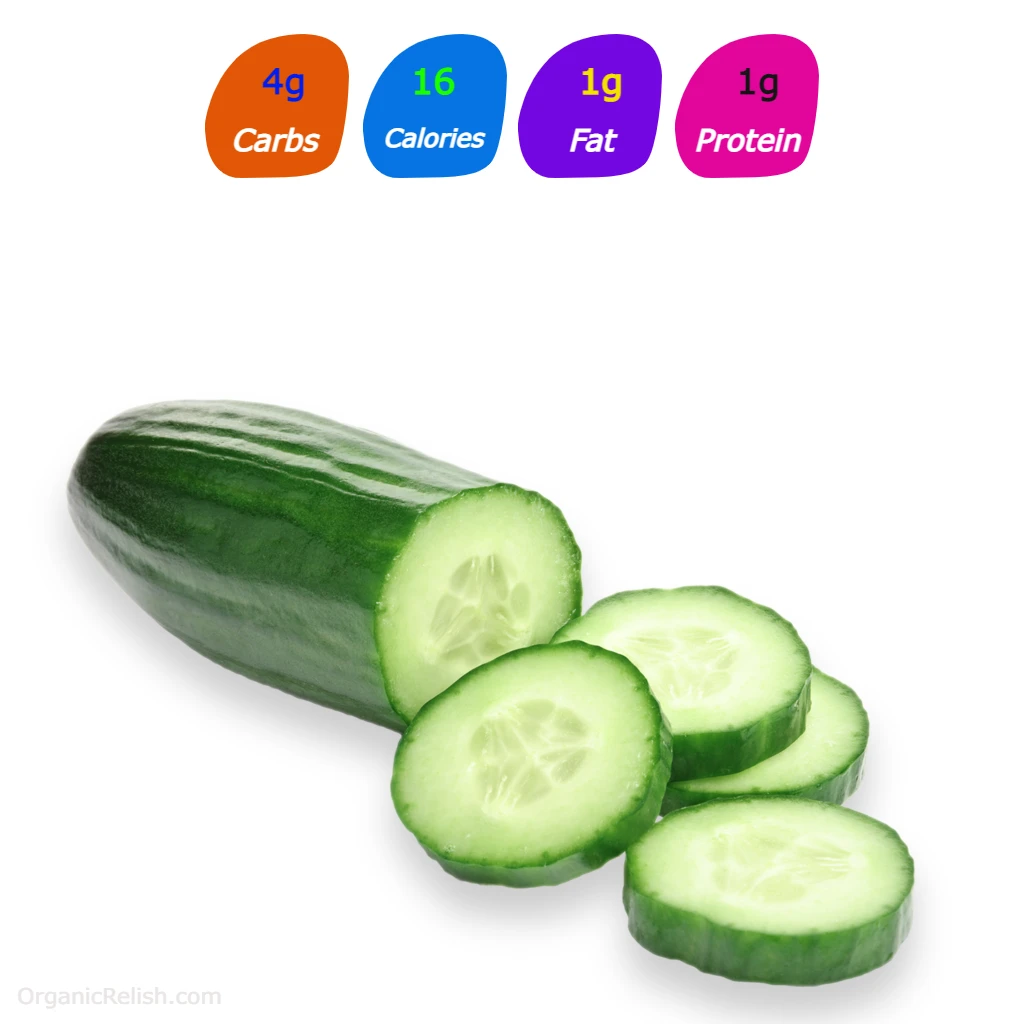
How many Carbs in Cucumbers?
Cucumbers are a low-carb vegetable, with about 4 grams of carbs per cup (approx. 52 grams) of sliced cucumbers. The majority of the carbs in cucumbers come from simple sugars, such as fructose and glucose. Cucumbers are also a good source of fiber, with about 1 gram of fiber per cup of sliced cucumbers. It’s worth noting that the carb content of cucumbers can vary slightly depending on the variety and size of the cucumber. In general, however, cucumbers are a very low-carb food that can be enjoyed as part of a low-carb or ketogenic diet. They are also a good choice for people with diabetes, as they have a low glycemic index and are unlikely to cause significant spikes in blood sugar levels. Cucumbers Nutrition Facts Cucumbers are a refreshing and hydrating vegetable that is low in calories and high in nutrients. One cup (approx. 52 grams) of sliced cucumbers contains the following nutrients: 16 calories 0 grams of fat 4 grams of carbs 1 gram of protein 1 gram of fiber 1 gram of sugar Cucumbers are a good source of vitamin K, with one cup providing approximately 22% of the daily value (DV) based on a 2,000 …
-
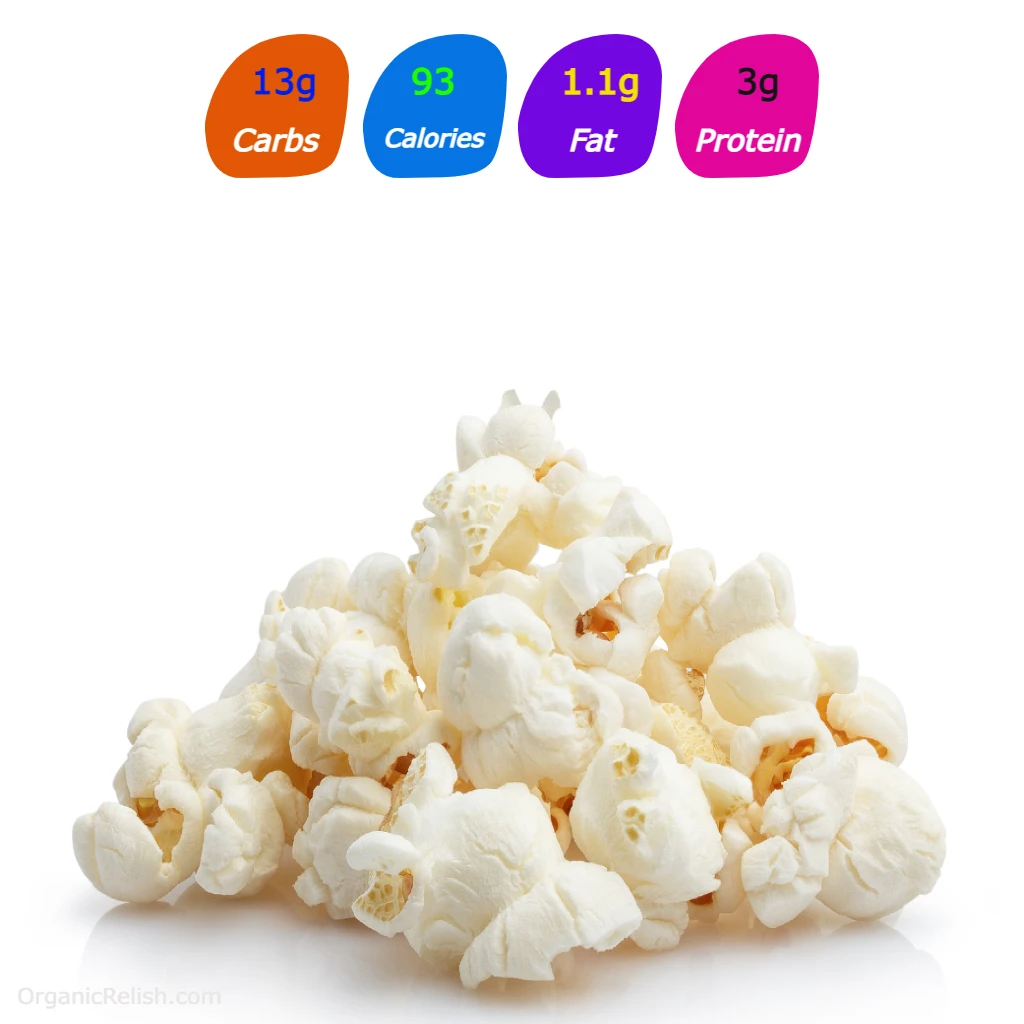
How many Carbs in Popcorn?
Popcorn is a low-fat, low-calorie snack option that contains some carbohydrates. The carbohydrate content of popcorn can vary depending on the specific type and how it is prepared. Here is the carbohydrate content of some common types of popcorn: Air-popped popcorn: A serving of air-popped popcorn (about 3 cups or 30 grams) contains about 18.7 grams of carbohydrate, including both sugars and dietary fiber. Oil-popped popcorn: A serving of oil-popped popcorn (about 3 cups or 30 grams) contains about 15 grams of carbohydrate, including both sugars and dietary fiber. Microwave popcorn: The carbohydrate content of microwave popcorn can vary depending on the specific brand and flavor. It’s a good idea to check the nutrition label for information on the carbohydrate content. It’s important to note that the carbohydrate content of popcorn can be affected by how it is seasoned or flavored. For example, popcorn that is coated with sugar or sweeteners will have a higher carbohydrate content than plain popcorn. Popcorn can be a good source of fiber and is a low-calorie snack option. However, it’s important to pay attention to portion sizes and to be mindful of the types of toppings or seasonings used, as these can impact the …
-
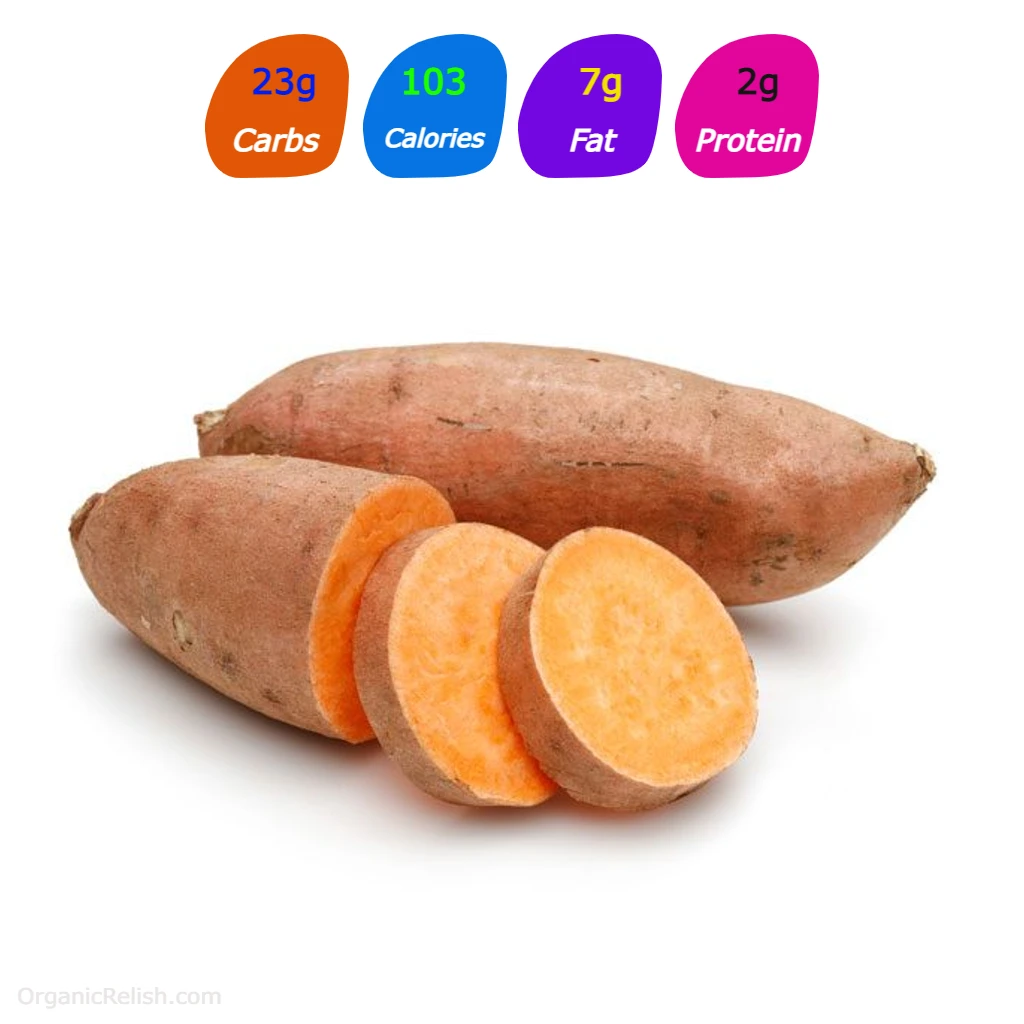
How many Carbs in a Sweet Potato?
A serving of sweet potato is typically considered to be about 1 medium-sized sweet potato (about 114 grams) contains about 23 grams of total carbohydrate. Here is the nutrition information for this serving size: Calories: 103 Total fat: 0.3 grams Sodium: 78 milligrams Total carbohydrate: 23 grams Dietary fiber: 3 grams Sugar: 7 grams Protein: 2 grams Sweet potatoes are a good source of vitamins, minerals, and antioxidants, including vitamin A, vitamin C, and potassium. They are also a good source of dietary fiber and complex carbohydrates, which can provide sustained energy. The nutritional content of sweet potatoes may vary slightly depending on the specific type and size. This information is based on a raw, unpeeled sweet potato. It’s important to note that the nutritional value of sweet potatoes can be affected by how they are prepared. For example, sweet potatoes that are peeled, cooked, or processed may have a different nutrient profile than raw sweet potatoes. Carbs in Sweet Potato vs Potato Sweet potatoes and potatoes are both sources of carbohydrates, but they differ in their nutrient content and carbohydrate profile. Here is a comparison of the carb content of sweet potatoes and potatoes: 1 medium-sized sweet potato (about 114 grams): …
-
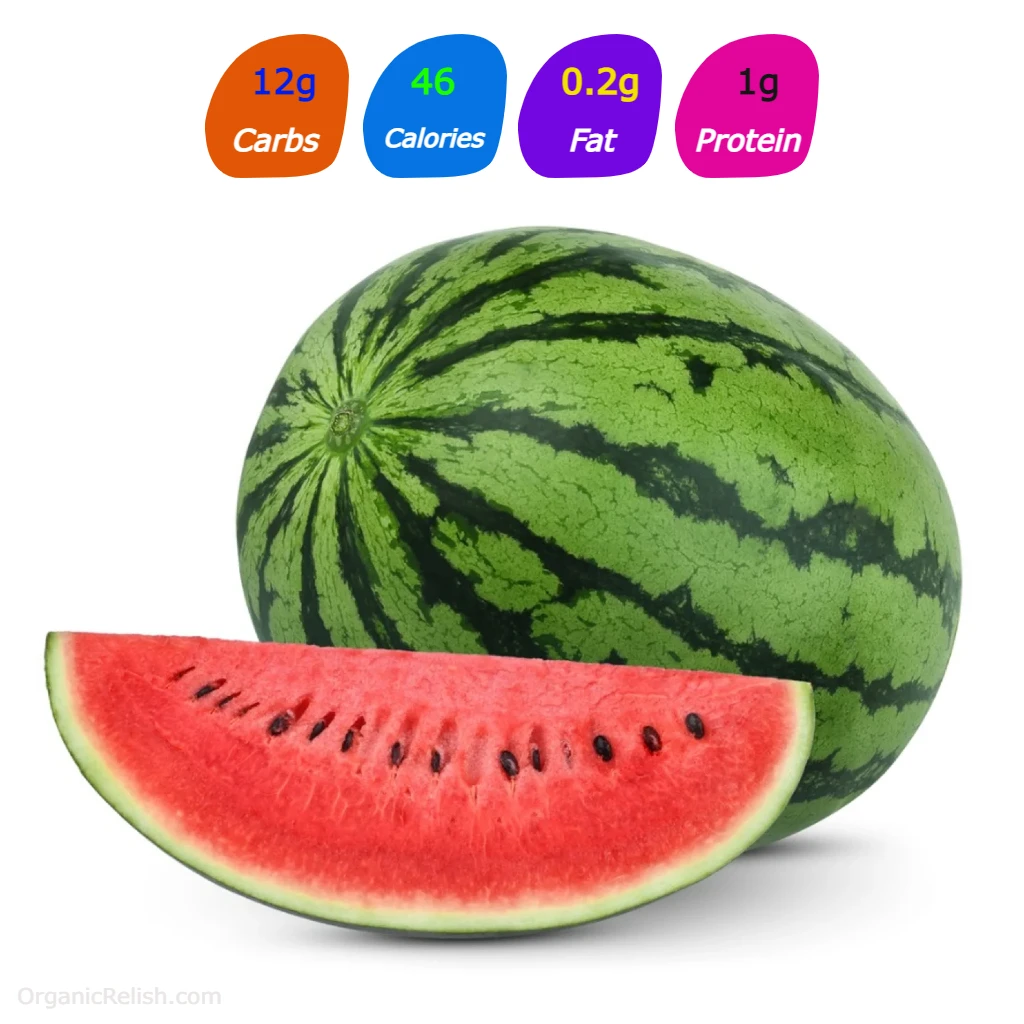
How many Carbs in Watermelon?
A serving of watermelon is typically considered to be about 1 cup (154 grams) contains about 12 grams of total carbohydrate. Here is the nutrition information for this serving size: Calories: 46 Total fat: 0.2 grams Sodium: 1 milligram Total carbohydrate: 12 grams Dietary fiber: 1 gram Sugar: 11 grams Protein: 1 gram Watermelon is a good source of hydration, as it is high in water content and contains electrolytes. It is also a good source of vitamin C, vitamin A, and lycopene, an antioxidant that may have health benefits. The nutritional content of watermelon may vary slightly depending on the specific type and size. This information is based on raw, fresh watermelon. It’s important to note that the nutritional value of watermelon can be affected by how it is prepared. For example, watermelon that is processed or cooked may have a different nutrient profile than raw watermelon. How many net Carbs is Watermelon? The net carbs in watermelon are the total carbohydrates minus the dietary fiber. This is because dietary fiber is a type of carbohydrate that is not digestible and does not affect blood sugar levels in the same way as other carbs. A serving of watermelon (about …
-
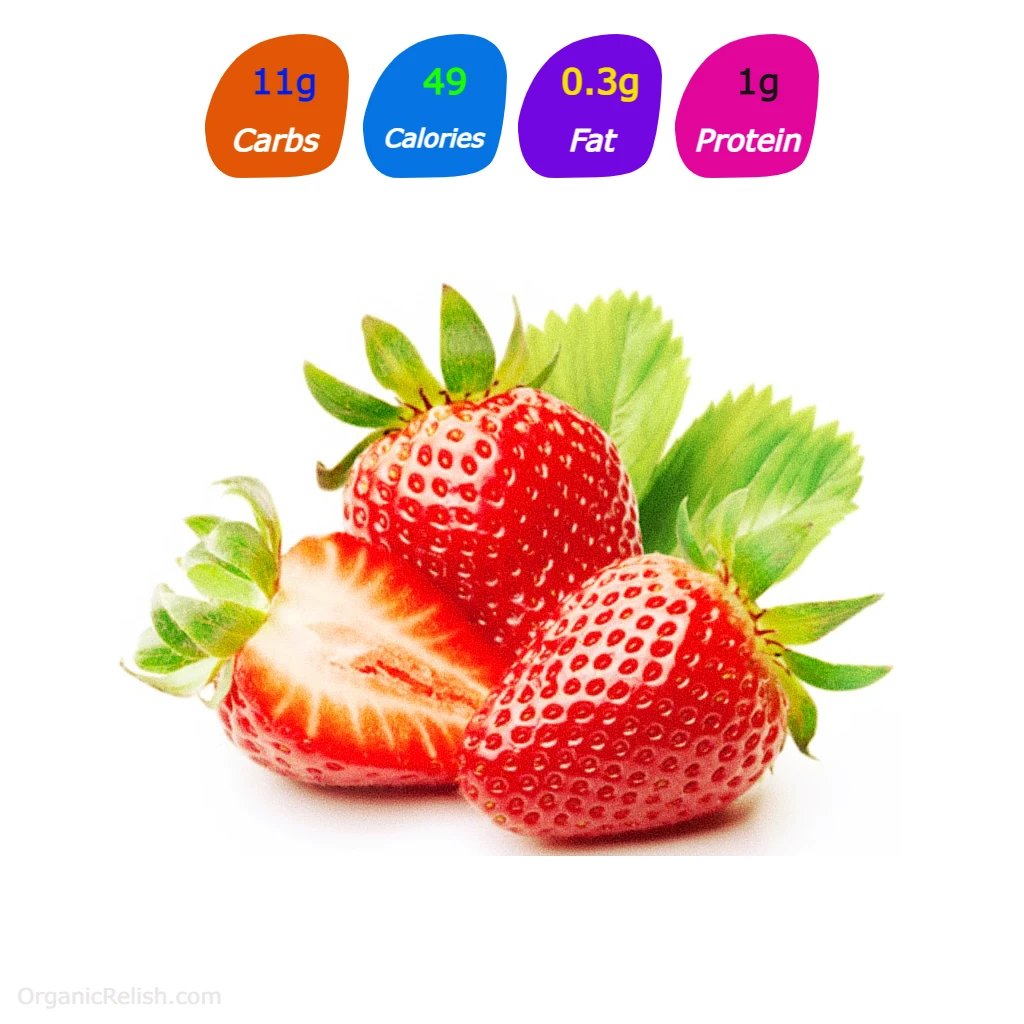
How many Carbs in Strawberries?
strawberries can be included in a low-carb diet in moderation. A serving of strawberries (about 8 medium berries or 144 grams) contains about 11 grams of carbohydrate, including both sugars and dietary fiber. Here is the nutrition information for this serving size: Calories: 49 Total fat: 0.3 grams Sodium: 1 milligram Total carbohydrate: 11 grams Dietary fiber: 2 grams Sugar: 7 grams Protein: 1 gram Strawberries are a good source of vitamin C, manganese, and dietary fiber. They also contain antioxidants and phytochemicals, such as flavonoids, which may have health benefits. The nutritional content of strawberries may vary slightly depending on the specific type and size. This information is based on raw, fresh strawberries. It’s important to note that the nutritional value of strawberries can be affected by how they are prepared. For example, strawberries that are processed or cooked may have a different nutrient profile than raw strawberries. Can I eat strawberries on a low carb diet? If you are following a low-carb diet, it’s important to pay attention to portion sizes and to track your intake of carbohydrates to ensure that you are staying within your desired range. You may need to adjust your intake of other carbohydrate-containing …
-
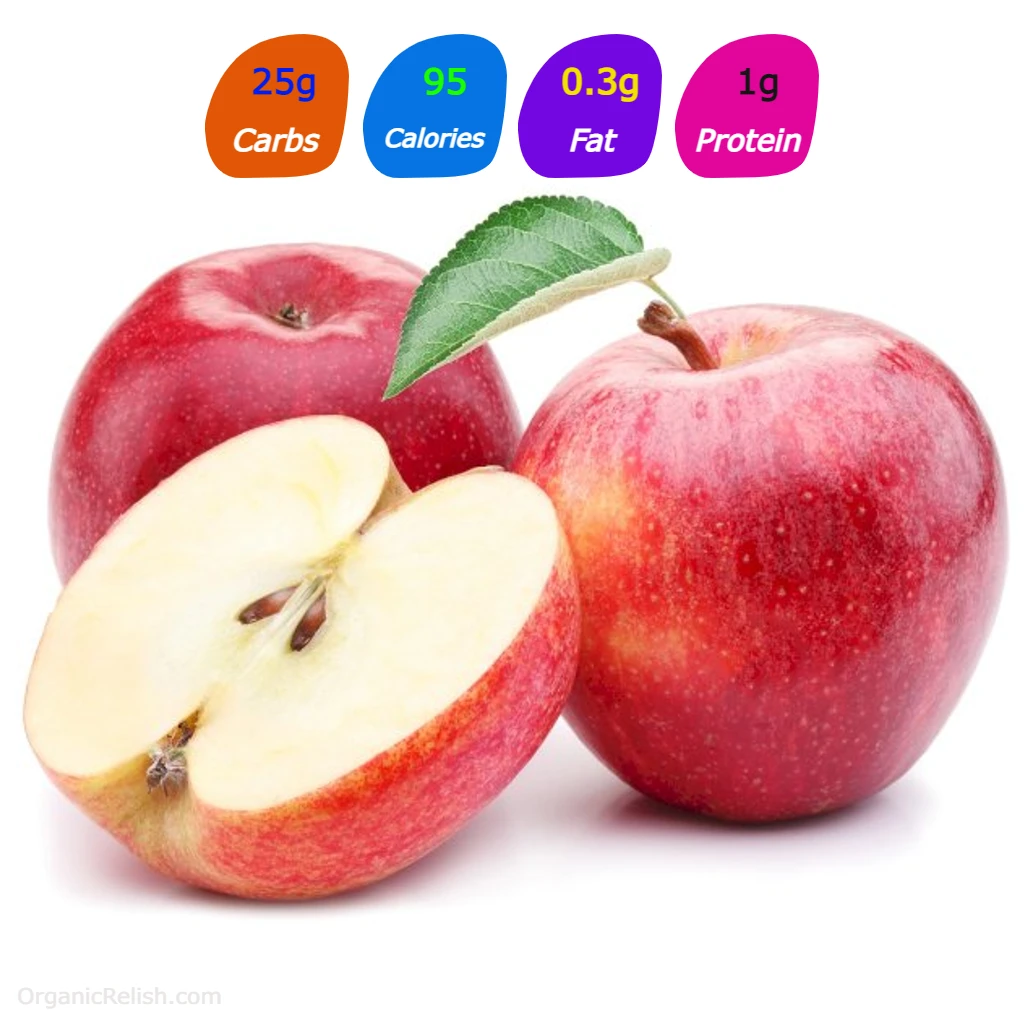
How Many Carbs in an Apple?
The number of carbs in an apple depends on the size and type of apple. A medium-sized apple (182 grams) typically contains around 25 grams of carbs, with a little over 3 grams of fiber and about 19 grams of sugar. It’s important to note that the majority of the carbs in an apple come from natural sugars, such as fructose and glucose. Apples also contain a small amount of starch, which is a type of complex carbohydrate. In addition to carbs, apples are a good source of fiber, vitamins, and minerals. They are also low in calories and contain no fat or cholesterol. As with any food, it’s important to enjoy apples as part of a balanced diet and to pay attention to portion sizes. Net Carbs in Apple Net carbs refer to the total number of carbs in a food minus the grams of fiber. Fiber is a type of carbohydrate that is not digested and absorbed in the same way as other carbs. It passes through the digestive system largely intact and has a number of health benefits, including helping to regulate blood sugar levels and promoting bowel regularity. Because fiber is not fully absorbed, it is …
-
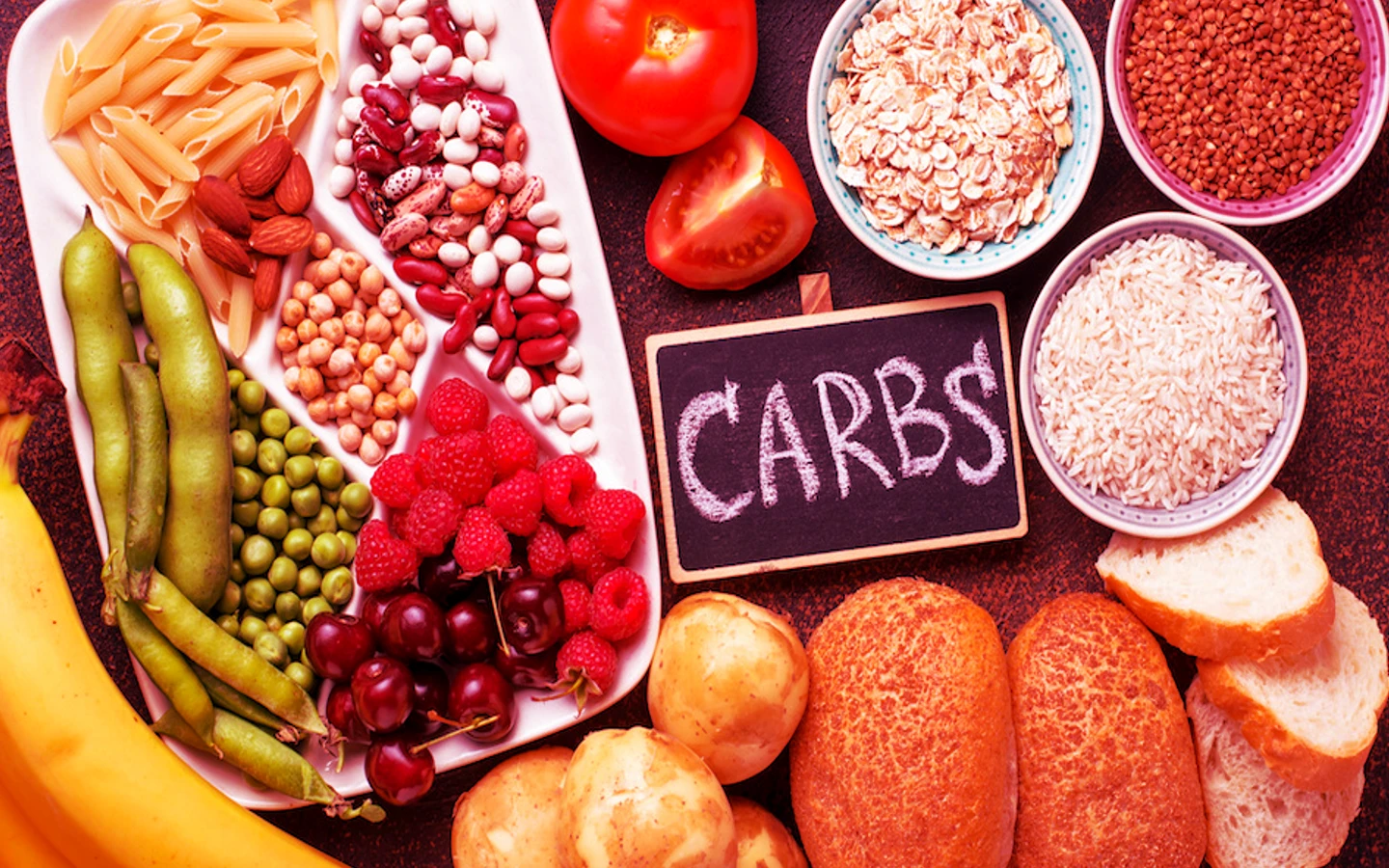
What are Carbs?
Carbohydrates are a type of macronutrient found in many foods and drinks. They are an important source of energy for the body and are found in a wide variety of plant-based foods, including grains, beans, fruits, vegetables, and dairy products. Carbohydrates are made up of sugars, starches, and fibers, and they can be classified as simple or complex based on the number and type of sugars they contain. Simple carbohydrates, such as those found in sugary drinks and sweets, are quickly absorbed by the body and can cause a rapid increase in blood sugar. Complex carbohydrates, such as those found in whole grains, legumes, and vegetables, are broken down more slowly by the body and provide a more sustained source of energy. What do carbs mean? The term “carbohydrates” is short for “carbohydrate molecules,” which are organic compounds that contain carbon, hydrogen, and oxygen. Carbohydrates are classified as macronutrients, meaning they are one of the three main sources of energy for the body, along with fats and proteins. Carbohydrates are the body’s primary source of energy, and they play a key role in many of the body’s functions, including brain function, physical activity, and the immune system. There are two …